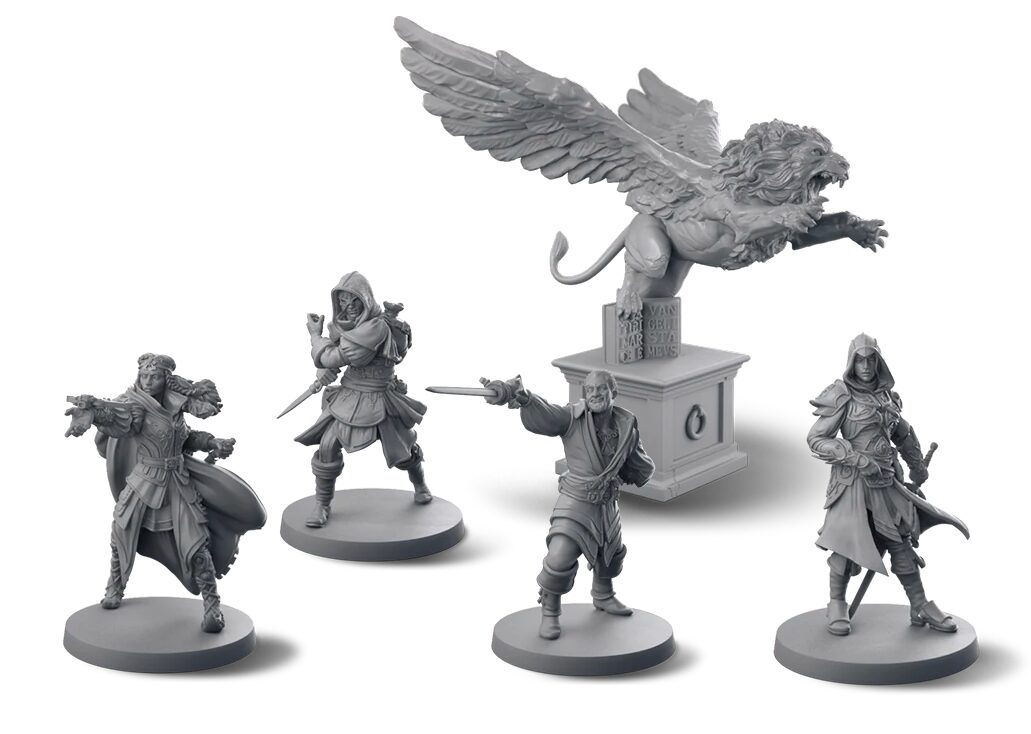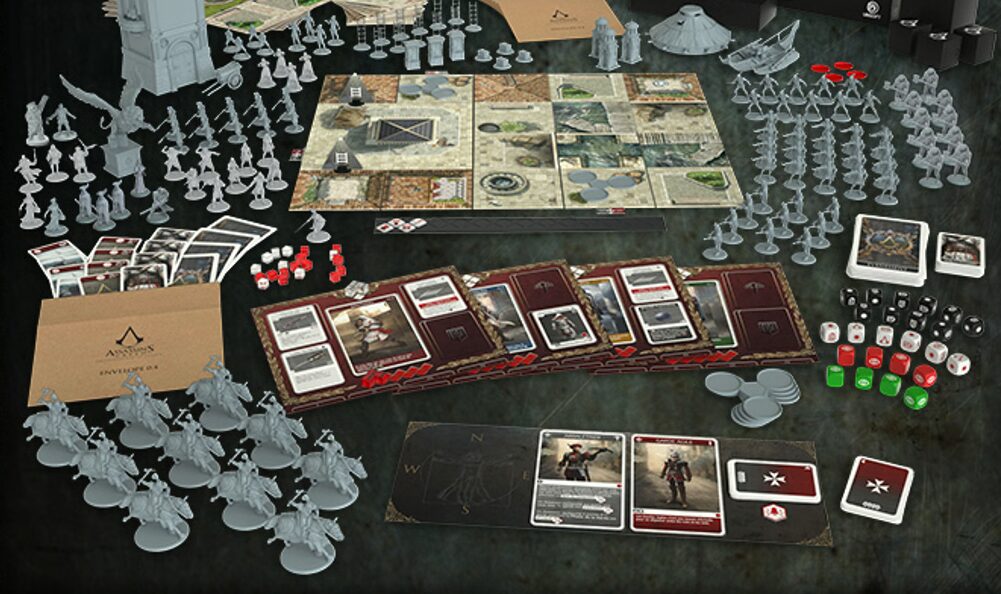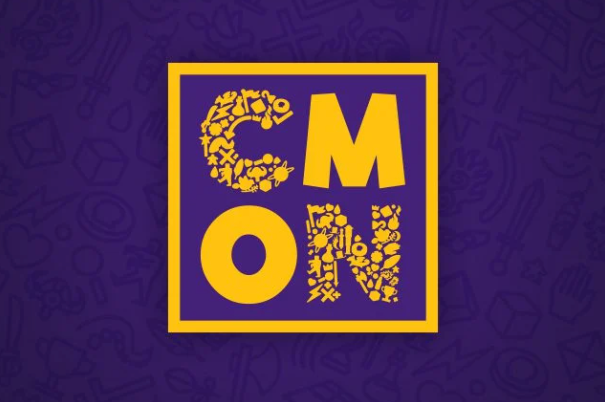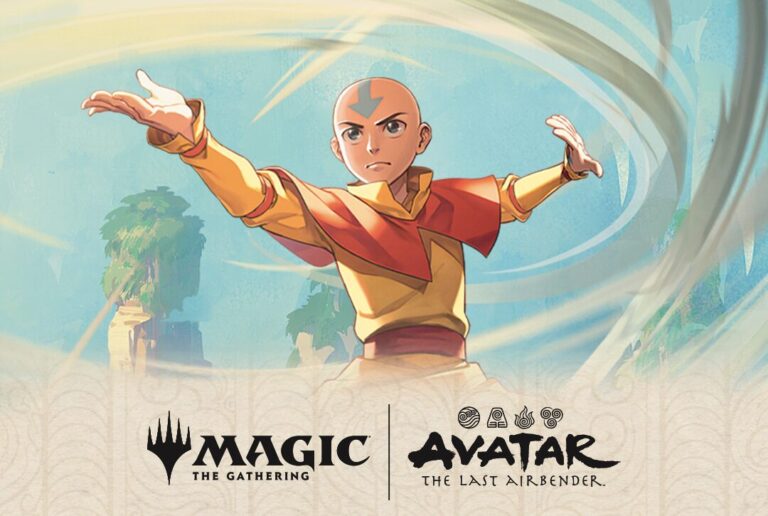
“The board game sector is fragile, especially at the moment”: Assassin’s Creed: Brotherhood of Venice publisher Triton Noir closes down after failure of last crowdfunding campaign
Triton Noir, the Canadian board game publisher which found Kickstarter success with its tabletop adaptation of the Assassin’s Creed video game series, has closed down almost a year after scrapping its fifth and final crowdfunding campaign.
Company founder Thibaud de la Touanne blamed the “fragility” of the board game industry, unexpected soaring shipping costs during the Covid-19 pandemic, and the difficulty standing out in a “saturated market” for the closure in a post on Triton Noir’s website.
De la Touanne created Triton Noir in 2014 after a more than 20-year career in video games – including stints as a producer at Assassin’s Creed developer Ubisoft – and saw the company raise about C$87,000 in its debut Kickstarter campaign for V-Commandos, a co-operative World War II tactics game.
The publisher’s biggest success came in 2018, when its co-op, team-based miniatures campaign game Assassin’s Creed: Brotherhood of Venice pulled in close to C$1.4m on Kickstarter from over 6,700 backers.
Campaigns for a deluxe version of V-Commandos – now renamed V-Sabotage – and an expansion for Brotherhood of Venice followed, raising more than $1.25m between them.
But de la Touanne said his company had already suffered a series of financial setbacks by that point, and the failure of its fifth crowdfunding campaign Gods Heist – which it cancelled after 24 hours amid lacklustre support, having already invested heavily in the title – proved the end of the company.
De la Touanne said in the Facebook post, “The board game sector is fragile, especially at the moment. Our first major setback came a few months after receiving our very first game, V-Sabotage.

“A third of the stock had been consigned to a French distributor. Although the 1,000 boxes sold very quickly, we were never paid: the distributor was itself experiencing serious difficulties.
“As a result, a third of our production was lost, resulting in a shortfall of €15,000 and a net loss of US$10,000 in manufacturing costs.
“It may not seem like much, but for a start-up company, at a time when I was still managing everything on my own and couldn’t pay myself a salary, it was very difficult.”
The company was hammered again during the Covid-19 pandemic, when the freight cost for Assassin’s Creed: Brotherhood of Venice skyrocketed to more than six times its initial estimate.
Triton Noir asked backers for an extra 10% contribution to cover costs, refunding completely any who refused – but despite ultimately getting the game into the hands of backers, the calamity resulted in a loss of more than $100,000 for the business, a massive blow given the spectacular success of the Kickstarter campaign.
Rising shipping costs also torpedoed profits on the company’s Assassin’s Creed: Apocalypse campaign, with the Red Sea shipping crisis seeing sea freight prices surge throughout 2024.
Triton Noir ended up short $65,000 of being able to afford to deliver the game, but chose to absorb that cost itself rather than ask backers for extra contributions.
De la Touanne also highlighted the difficulty Triton Noir had standing out in an increasingly saturated market, saying, “While I think we have demonstrated our ability to design, develop, and deliver games that are acclaimed by the community, we have encountered difficulties when it comes to promoting and selling our creations.
“The market has become extremely competitive. Every year, thousands of new games are released and players are bombarded with offers from all sides. Standing out in this environment has become a real challenge.
“We also have principles and values that are difficult to reconcile with today’s hyper-competitive business world. It is likely that we have not been aggressive enough in our communications (social media, newsletters, advertising, etc).
“We have tried several collaborations with marketing agencies, but they have rarely yielded the desired results.
“Similarly, we have always refused to go on Amazon on principle. A game like Assassin’s Creed could have been successful there, especially since we would have been the only ones selling it on that platform.
“Most of our Kickstarter campaigns generated results that fell short of our expectations. This translated into lower production volumes, which automatically led to an increase in the unit cost of manufacturing our games.
“One of the best examples is the cost of manufacturing the core boxes during our second Kickstarter campaign for Assassin’s Creed Brotherhood of Venice, where the cost of manufacturing the core box nearly doubled!”

De la Tounne acknowledged the company had not been focused enough on profit, saying it had underestimated its Kickstarter pricing for the Assassin’s Creed: Brotherhood of Venice core box – which it ultimately had to more than double in order to break even.
He added that the company’s mindset of prioritising quality, and that ‘the game will be released when it’s ready’, also cost the business dearly due to salaries across its extended development times eating into the companies bottom line.
De la Tounne said, “Our fifth crowdfunding campaign, for the game Gods Heist, ended in failure. It generated only a third of the amount needed in our most pessimistic scenario.
“With this project, we had the ambition to create an original universe, perhaps too daring, and we undoubtedly failed to communicate effectively what differentiated this project from our previous games.
“However, we had invested heavily and the game was almost ready to go to print, in line with the practices of many publishers today: all the illustrations, tiles, and miniatures had been finalized.
“This failure marked the end of the Triton Noir adventure.”
De la Tounne has been working for the last few months as a project manager at Hachette-owned Canadian board game publisher Scorpion Masque, according to his LinkedIn profile.
He said of Triton Noir, “I decided to aim high. I put everything I had into it, giving myself the means to do my best, with a great deal of freedom. Today, with Assassin’s Creed: Brotherhood of Venice and V-Sabotage, I finally feel like I’ve achieved that dream.
“That’s why I don’t see the end of Triton Noir as a failure, but as a success. I’ve learned a lot in the field of game development and publishing, but also on a more personal level.
“Thanks to a passionate team of jack-of-all-trades, Triton Noir operated for 12 years without investors, remaining 100% independent. The studio had up to four employees, with a catalog consisting of only two games and nine expansions.
“That alone, I think, can already be considered a great success. The plan I had in mind from the start (combining crowdfunding, online store, and distribution) worked well overall.
“Assassin’s Creed: Brotherhood of Venice is an extremely ambitious game. Developing the game’s various campaigns (50 missions in total) in five languages with only four people is quite an achievement.
“It was a huge challenge, taken on with far fewer people than other studios developing games of this caliber.”
Other board game publishers that have announced their closure this year include Tokaido publisher FunForge, Colt Express and Living Forest publisher Ludonaute, and Merchants Cove and Coloma publisher Final Frontier Games, while Flat River Group has laid off the vast majority of staff and suspended new projects at Spirit Island publisher Greater than Games.







[…] progreso o le entregue 3 fichas de destrucción a su oponente, gana.Triton Noir cierra sus puertashttps://boardgamewire.com/index.php/2025/10/07/the-board-game-sector-is-fragile-especially-at-the-mo…https://triton-noir.com/pages/the-triton-noir-adventure-is-overTriton Noir, el editor canadiense de […]